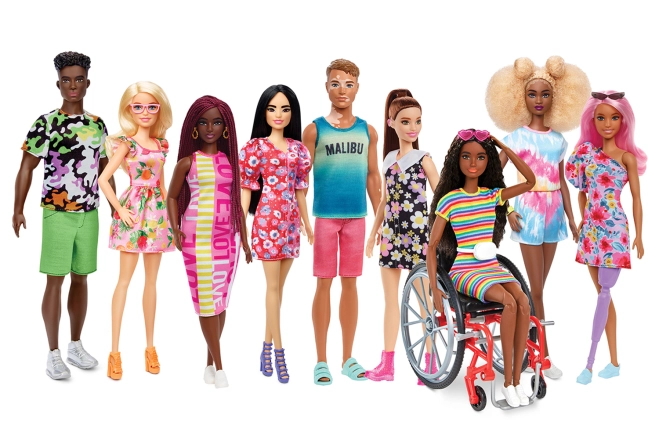
This summer's blockbuster movie is Barbie -- and the movie is breaking records and challenging stereotypes. But Barbie is also challenging stereotypes on a more personal level for families with special needs children and their playmates and classmates. Mattel has unveiled a new Barbie doll with Down syndrome. The doll was created to give more children with Down syndrome an opportunity to see themselves represented in a toy.
#StayTuned: Our October episode of the Curious Incident podcast will discuss important issues for parents of children with Down syndrome.
At the heart of many childhoods, Barbie brings back memories of a gorgeous doll, often viewed as perfect with every strand of hair in place. Barbie made playdates fun and, while she lacked in diversity of skin tone, body style, and representation of the full spectrum of girls, she was the epitome of what so many assumed adulthood would be with her many accessories, dream house and dream car, her abundance of friends, and, of course, Ken. But that was the problem.
Well, that was then. Today is different. Mattel is striving to correct this narrative.
As children, we share our dreams, fears, concerns, worries, and perspectives through play. According to Kristin Trick, LPC-Sm, RPT,
“Play therapy is a therapeutic modality meeting children at their level to bring about change and healing. Rather than expecting children to verbally engage in sessions, to resolve their presenting problems and discuss coping strategies, the act of play can achieve the same results.”
Development through play is critical for children's social and mental growth. To represent those with special needs, Mattel has created Barbies with Disabilities. In addition to Barbie with Down Syndrome (pictured above), pictured below from the website of Ameridisability is a Barbie with a behind-the-ear hearing aid, a Barbie with a prosthetic leg, and a Ken doll with vitiligo.

Mattel has made it their mission to strive for a Barbie dream world that is inclusive of disabilities and diversity. If Barbie can advocate for our children, you can too.
We would love to connect with you and help your child with practical next steps to feel safe in schools and life. Call us today for a complimentary consultation. Let Barbie change the dream world in Toyland and let us guide you in securing the supports your child needs to succeed.
Your child's education is our #1 priority. If you have questions about your child's education, contact the Law Offices of Adam Dayan. Call (646) 866-7157 and request a consultation with our New York attorneys today.

